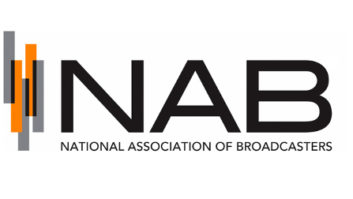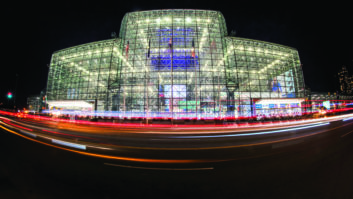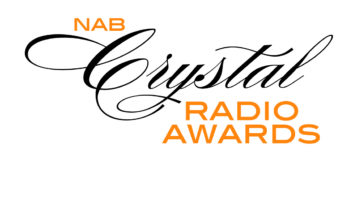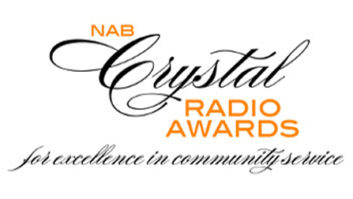The NAB says the FCC did the right thing last summer when it eliminated the radio duplication rule for FM as well as AM stations. It is slamming opponents who want to overturn the decision, calling them cynical and retaliatory.
The story so far
In August, the Federal Communications Commission eliminated the rule that restricted duplication of programming on commonly owned stations that operate in the same service and geographic area. However, it unexpectedly did so for FM stations as well as AM, a late change that was criticized at the time by Democratic Commissioners Jessica Rosenworcel and Geoffrey Starks.
Subsequently, REC Networks, musicFIRST and Future of Music Coalition formally asked the FCC to overturn the decision in regards to FM stations. Among other things they basically accused the National Association of Broadcasters of pulling a fast one by seeking to change the terms of the issue at the last minute.
The opponents reminded the FCC that it had proposed and circulated a draft order applying only to AM stations and explicitly retaining the rule for FMs.
“In its Final Order, however, without warning or justification, the commission reversed course, eliminating the Radio Duplication Rule in its entirety,” they argued in November.
They said the elimination of the FM portion of the Radio Duplication Rule would “invite a reduction in diversity of programming, while encouraging corporate radio owners to hoard spectrum.” They believe the economic fallout of the pandemic should not be used as a justification because it is ultimately a temporary situation that could be dealt with through waiver requests, whereas the rule change will have lasting consequences.
And they said the FCC’s “sudden about-face” regarding FM violates federal law on administrative procedures. They said that on the day before the sunshine period, the general counsel of the NAB called senior aides to Republican Commissioners Pai and Carr to argue that the FM rule should be eliminated.
The effect of the timing, they said, “was to ensure that petitioners would not be able to speak to anyone at the commission about the matter on an ex parte basis prior to the commission’s vote. The timing of these actions is an affront to the stated purpose of the commission’s ex parte rules, namely to ‘ensure the fairness and integrity of its decisionmaking.’”
They laid out legal reasoning why a second round of public comments should have been held instead.
NAB replies
Now the NAB has replied formally to the commission.
The association says the critics’ arguments about competition “exhibit a complete misrepresentation of the business fundamentals of the radio industry and the intense competition radio faces, and a total lack of understanding of the market value of AM/FM radio spectrum.”
NAB slammed them as retaliatory: “Once again, we see musicFIRST and FMC file in commission proceedings concerning radio not because the companies and organizations those groups represent care about the proceedings at issue, but rather, to retaliate against broadcasters for those groups failing to convince Congress to enact a tax on radio stations when they play (promote) record labels’ music on terrestrial radio stations.”
The broadcast group also argued that the petition raises no new issues.
“The FCC correctly determined that, even absent the radio duplication rule, radio stations have no incentive to limit their appeal to listeners or advertising revenues by simulcasting the same content on multiple stations in the same market,” NAB wrote.
“To the contrary, the FCC explained that the best way for stations to reach the widest audience possible and maximize profits is to provide distinctive programming on their various stations, which is exactly the practice of broadcasters with multiple stations in the same market.” They said the opponents had not named one instance where a station has taken advantage of the repeal in the way the critics worry about.
NAB said these opponents also disregard the competitive incentives that broadcasters have to provide “diverse, distinctive content.” It said they “insist on demonstrating their consistent misunderstanding of what it takes for radio stations to survive in today’s hyper-competitive audio marketplace … Both musicFIRST and FMC appeared blissfully unaware of how difficult it is for radio stations to endure in this environment, never mind serve the public interest effectively.”
It said the explosion in audio choices provides consumers with “nearly limitless content diversity.”
NAB also said eliminating the rule provides FMs the ability to “quickly repurpose programming on commonly owned stations,” especially when they need to share critical information during an emergency. There was no reason to retain the rule and force stations to incur the time and expense of pursuing a waiver. Eliminating the rule also could help stations to facilitate a format change on a sister station or more efficiently cover a specific issue of local interest, for a limited period of time.
“Finally,” NAB wrote in its conclusion, “the entire point of the FCC’s media regulation modernization initiative is to modify or eliminate regulations that no longer serve an important purpose. … [T]he rule is a perfect example of an unnecessary regulation that can needlessly hinder broadcasters’ ability to efficiently serve Americans, particularly during crises.”
The debate comes at a time of transition at the FCC, with an incoming Democratic presidential administration and the expectation of a new chairman soon. Chairman Pai will oversee his final FCC open meeting this month. Pai has said that regulatory transparency is one of the hallmarks of his tenure.
The deadline for comments on the opponents’ petition was Monday. Replies must be filed by Jan. 15.












